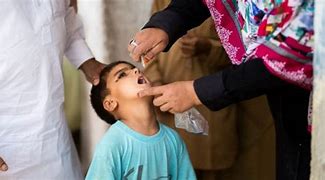Islamabad, Dec 13: Pakistan has witnessed a concerning rise in polio cases this year after remaining polio-free for 14 months between 2021 and 2022. According to the Senate Standing Committee on Health, 59 cases have been reported across the country, with 19 resulting in mild disabilities and 10 in severe disabilities.
This alarming resurgence was discussed in detail during a committee meeting chaired by Senator Aamir Waliuddin Chishti on Thursday, where officials briefed the members on the ongoing efforts to combat the virus.
Dr. Mukhtar Bharath, Health Coordinator, highlighted the role of the National Health Institute in addressing the polio crisis, focusing on its contributions in detecting and diagnosing cases. Despite the progress made in the past, Dr. Bharath expressed concern about the spread of the virus, particularly in regions like Quetta, Peshawar, and Karachi. Anwarul Haq, Chief of the Polio Emergency Operation Center, also pointed out these areas as being the most severely impacted.
While Karachi and Balochistan have seen better results, challenges persist, especially in southern Khyber Pakhtunkhwa. Dr. Humayun Mohmand noted that some areas in Khyber Pakhtunkhwa remain inaccessible for immunization campaigns due to security issues after dark. He further emphasized the stigma attached to Pakistan’s struggle with polio, noting that the country remains one of the last in the world, along with Afghanistan, still fighting the disease.
Senator Chishti praised the government’s ongoing efforts, particularly in Sindh’s interior regions, and commended the collaboration with international organizations like the Bill & Melinda Gates Foundation and Rotary International. The committee also acknowledged the role of seasonal travel during major festivals like Eid in spreading the virus, urging greater vigilance during these times.
Despite the setbacks, the committee remains optimistic about the future of Pakistan’s polio eradication program. Dr. Bharath shared that with improved immunization strategies and government-led initiatives, a decrease in virus transmission is expected by February next year.
Pakistan continues to bear the tragic loss of polio workers, with 88 having been martyred while performing their duties. Dr. Bharath expressed gratitude for their sacrifices, noting that Prime Minister Shehbaz Sharif had personally reached out to their families, offering support and recognition for their invaluable contributions to the cause.
The committee also addressed other pressing health matters, including the absence of the Pakistan Nursing Council president, who has failed to attend the meetings twice in a row. Strict disciplinary action was warned. Furthermore, discussions were held on the “National Institute of Health (re-organization) Amendment Bill, 2024,” which was deferred for further deliberations, and the decision to extend the Bachelor of Dentistry Surgery program from four to five years, which lacked proper stakeholder consultation.
Concluding the session, Senator Chishti reaffirmed the Senate’s commitment to eradicating polio, stressing that the ongoing efforts, including immunization campaigns and public awareness, will continue to move Pakistan closer to becoming polio-free. “We will not rest until polio is eradicated from Pakistan,” he concluded.









